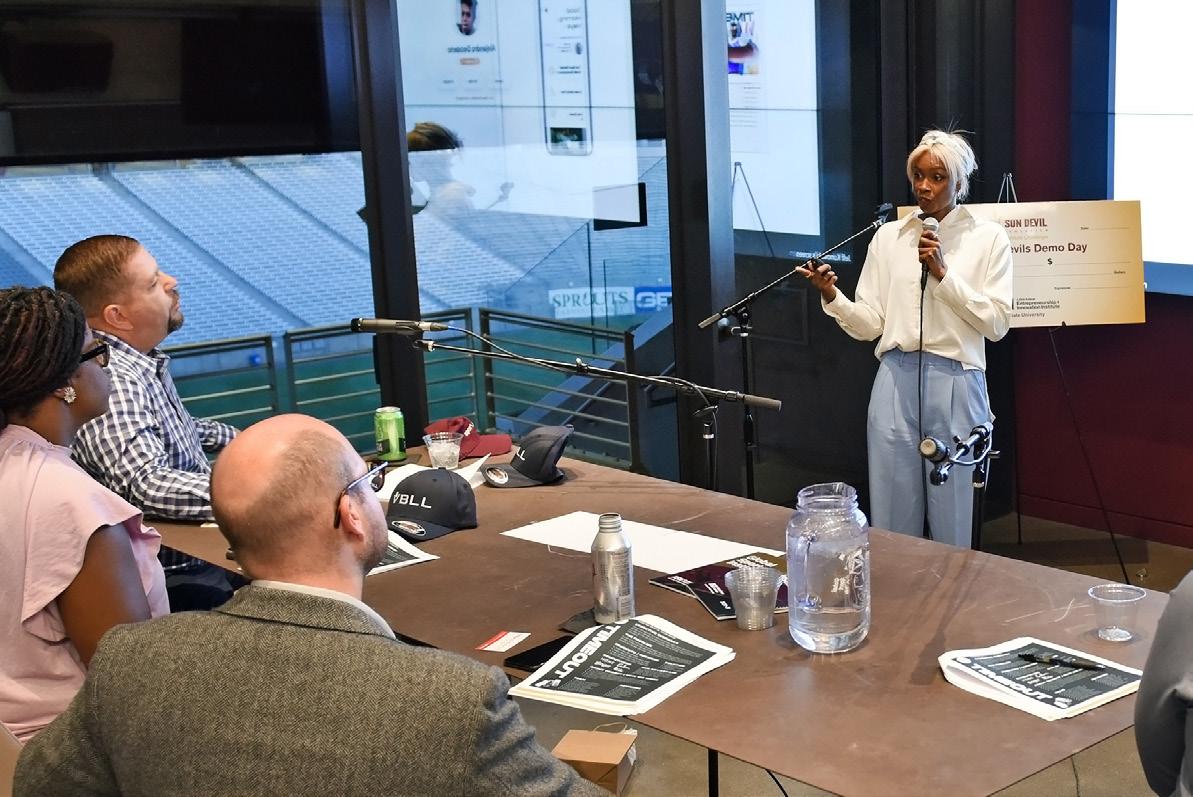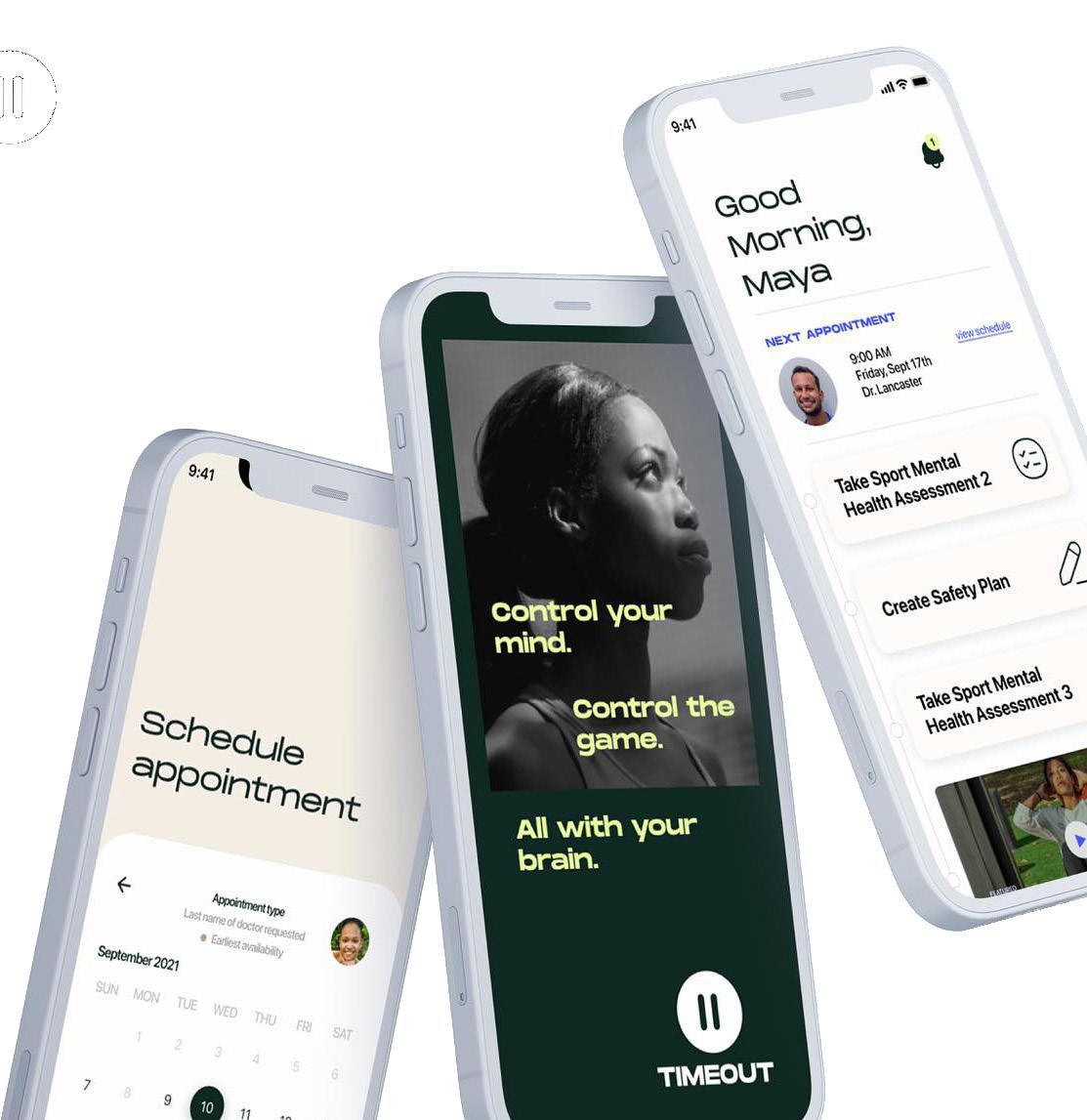
2 minute read
Venture feature: Timeout App
Photo courtesy Tim Trumble for Global Sport Institute

Advertisement

Images courtesy of Timeout Software, Inc.
VENTURE FEATURE
Timeout App
Founded by Maya McClendon
Coming from a family of athletes, Maya McClendon keenly understands the financial and social challenges that face people who make it to the highest levels of sport. But she also knows that decision-makers are only just now catching on.
With that in mind, McClendon in 2020 founded Timeout, an app-based company dedicated to “making AI-powered mental health care delivery accessible to all athletes anytime, anyplace.” And in 2021, McClendon, a former indoor volleyball player at ASU, competed in the Global Sport Venture Challenge, a funding track within the annual Venture Devils Demo Day at ASU, where she won the top prize of $15,000. That allowed Timeout to begin work on the machine-learning technology behind its app, and in the spring of 2022, McClendon pitched a panel of judges at the Second Annual Sun Devil Athletics Venture Challenge, at which the company again won top prize, an additional $20,000.
Within Timeout, athletes are able to schedule meetings with clinical mental health specialists, find educational materials, and understand their own state of mind through surveys and other interactive sections. The opportunity to partner with SDA, combined with a separate agreement with Spalding University in Louisville and a potential National Institute of Health grant, has propelled Timeout to a stage where it is rolling out its app to active student-athletes while continuing to develop the technology and garner feedback on the program itself.
“Innovation is such a big, loaded word in our society, but really getting down to how we can incorporate research and innovative tools that are socially impactful and created by athletes, for athletes,” McClendon said.
During the fall of 2022, McClendon will work with SDA coaches and administrators to get ASU athletes set up on Timeout in a customized fashion. From that point, student-athletes will interact with the app at their discretion and either engage with the informational tools or connect with the pool of professional therapists and psychologists who can be contacted through the app. McClendon’s staff of athletes and clinical professionals will then incorporate usage data and feedback to improve the technology and programming Timeout offers as it rolls out across the country.
“We feel misunderstood and we don’t have a lot of people who understand our experiences,” McClendon said of athletes. So we’re really creating a community around a tool that’s made for us. I haven’t seen it done before. ”

Whereas the Spalding University collaboration will give Timeout a more focused set of Division II athletes to learn from and work with, the SDA beta testing partnership gives Timeout a large-scale site for understanding student-athletes at a deeper level and making the app the best it can be.
“I keep coming back and seeing how I can work with GSI and ASU because we have talked to other universities who are afraid to take risks and invest in opportunities like this,” McClendon said. “Having my alma mater be supportive means a lot. ”







